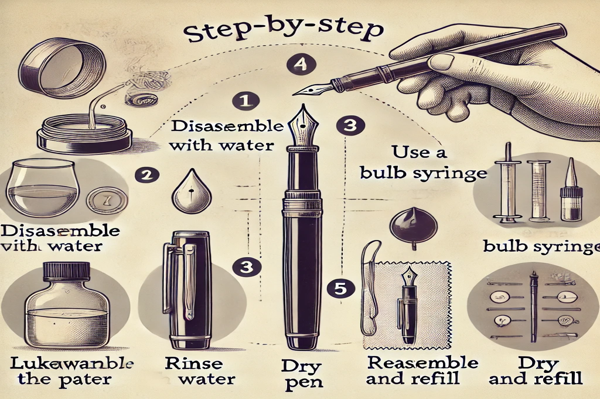+86 13586865656
After infection of novel coronavirus recovery, what should notice?
After infection of novel coronavirus recovery, what should notice?
At present, the goal of COVID-19 prevention and control is to ensure the health and prevent severe cases. After infection with the novel coronavirus, how to use medicine scientifically? After recovery, what should I pay attention to? How long can you exercise? Does donating blood increase the risk of infection in people who are not infected with the novel coronavirus? In view of the current hot issues of public concern, authoritative experts in relevant fields give answers.
1
How to use medicine scientifically after infection?
Gao Yan, director of the infection department at Peking University People’s Hospital, said that people with high fever and other clinical symptoms after being infected with the novel coronavirus will feel very uncomfortable when their body temperature exceeds 38.5 degrees Celsius. At this time, some antipyretic drugs are needed.
Gao Yan introduced, if the patient itself has some chronic disease, such as gastric ulcer, or duodenal ulcer, or usually has some basic diseases of the gastrointestinal tract, the use antipyretic analgesic drugs, do not take on an empty stomach. In addition, intensive drug use may induce gastrointestinal bleeding and other symptoms, can be combined with some gastric mucosa protective agents, and then eating antipyretic analgesic drugs will be safer.
“For the majority of COVID-19 patients, still have mild cases and just need proper treatment. Cough suppressant and phlegm-reducing drugs are relatively safe.” Gao warned that there may be some interaction between many drugs in clinical practice, especially for people with serious chronic underlying diseases, drugs should be taken under the guidance of medical institutions and doctors.
2
What matters should be noticed after recovery?
Liu Qingquan, president of Beijing Hospital of Traditional Chinese Medicine Affiliated with Capital Medical University, said that seven to 10 days after infection, most people will enter a state of recovery, nucleic acid or antigen may turn negative, but there are still some symptoms, such as cough, throat discomfort. Entering the rehabilitation period, the patient should maintain high morale spiritually.
Liu Qingquan reminds me after recovery not eat and drink too much, maintain a light diet, strengthen my nutrition, eat enough protein, and eat more vegetables and fruits, to ensure physical recovery. At the same time, the pace of life and work should be slowed down appropriately, and don’t stay up late.
For those who have returned to work after recovery, Gao said they could return to work if their physical strength improved significantly after their fever broke. However, some respiratory symptoms may be slower to recover, and you should still stay in bed during fever periods.
3
How soon can I exercise after recovery?
Liu Qingquan reminds us that moderate exercise is conducive to the recovery of health, but not strenuous exercise, excessive exercise not only can not recover health but there may also be some other problems.
According to your own exercise habits, you can choose the right amount of exercise, no more than a third of the usual amount, and gradually increase it, Liu said.
Gao said that for young and middle-aged people, the recovery period will be shorter and will not affect the resumption of work and production. But high-intensity fitness, or slowing down a little, paying attention to rest, strengthening nutrition, let oneself return to the normal state as soon as possible.
“People over 60 years old, especially those with chronic diseases such as diabetes, hypertension and coronary heart disease, should pay more attention to respiratory symptoms, such as cough, chest tightness and shortness of breath.” Gao Yan introduced, a week or so after nucleic acid or antigen negative, these respiratory symptoms may continue, such as obvious relief of the disease, and then return to normal exercise, more conducive to health.
4
People who are not infected with COVID-19
Does donating blood increase the risk of infection?
“A healthy adult who donates no more than 13 percent of his total blood volume has no ill effects.” Beijing Red Cross Blood Center deputy director technician Guo Jin introduced that a healthy adult’s total blood volume accounts for about 8% of body weight if 50 kilograms of people donate 200 or 400 ml, that is, account for 5% or 10% of their total blood volume, heavy people account for a lower proportion.
Guo Jin said blood donation is the collection of human peripheral blood, blood in the liver, spleen, lung, and other blood storage organs will be quickly replenished to the peripheral blood, restoring the circulation of blood volume. Donating blood does not affect your health and does not increase your risk of contracting COVID-19.
5
What are the conditions for blood donation after infection with COVID-19?
Is the blood donated safely?
According to Guo, asymptomatic, mild, and ordinary people who have been infected with COVID-19 can donate blood one week after the symptoms of upper respiratory tract infection such as fever, cough, and sore throat disappear completely, and seven days after the last positive nucleic acid or antigen test. If a person is infected with a severe or critical disease, he or she must recover for six months before donating blood.
“This standard is consistent with the international requirements on delayed blood donation after COVID-19 infection and the current requirements on delayed blood donation of those infected with respiratory and lung infections, and will not cause harm to the health of blood donors.” Guo Jin said.
On whether blood donated by previously infected donors is safe, Guo said the novel coronavirus is a respiratory virus and cannot be transmitted through blood transfusions. So far, no transmission of the novel coronavirus through blood transfusions has been reported globally. Blood donated by donors who have recovered from COVID-19 is safe, and blood stations will strictly manage blood collection and supply to ensure that patients recover and undergo a period of health observation before donating blood.














